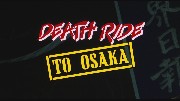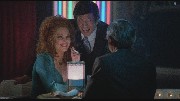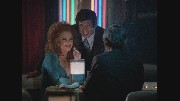Primetime Panic: Girls of the White Orchid / Death Ride to Osaka (1983), Dreams Don’t Die (1982), Freedom (1981) 3 x Blu-Ray Fun City Editions
on October 22nd, 2021 at 17:10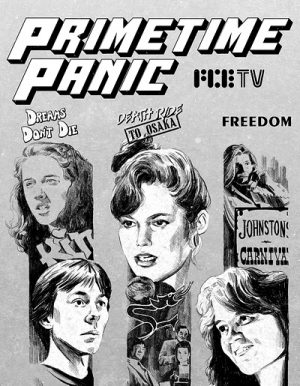
As home video continues to make baby steps correcting decades of neglect for made-for-TV movies of all stripes, Fun City Editions has thrown everyone a curve ball with its three-disc Blu-ray set, Primetime Panic. Here we get a trio of features united not by genre or stars but by the producers, Leonard Hill and Philip Mandelker, who turned out a slew of film for network TV in the early '80s before Mandelker passed away far too young in '84. What set their films apart at the time was their quality level comparable to theatrical features, with actors chosen for their abilities and suitability for the roles rather than sheer stunt casting. This set makes for a solid introduction to their work if you weren't old enough to catch these the first time around, with two of the films making their first home video appearances in any format. The title might lead you to think these are all thrillers, but it's worth noting that "panic" only really applies to two of them -- and one is definitely not what folks saw during primetime!
3xBD50 | 1080p AVC | 287 min | 127 Gb + 3% rec
Language: English
Subtitles: English
Genre: Crime, Drama, Thriller

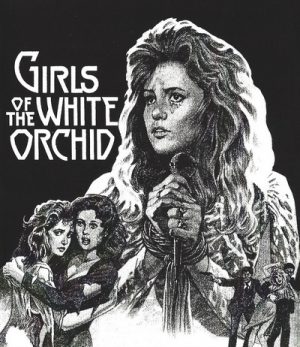
The most lurid of the bunch, Death Ride to Osaka (a.k.a. Girls of the White Orchid, 1983), stars Jennifer Jason Leigh as Carol, an aspiring teenage singer with significant talent but not a lot of common sense. She seizes upon a too-good-to-be-true opportunity to gain professional experience performing at night clubs in Japan, signing a contract to head overseas for a few months’ worth of work. Little does she realize that the job is a tightly-fashioned ruse to get the helpless young girl into an unfamiliar country, and that the Tokyo nightclub employing her is actually a brothel controlled by the Yakuza. As the grim reality dawns on poor Carol, some fellow captives are inspired to win their own freedom—only to be shipped off to Osaka, where they’re subjected to endless, demoralizing abuse.

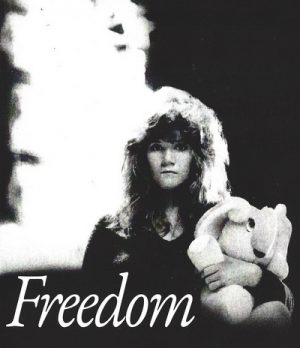
Freedom (1981) follows Mare Winningham as Libby, the eldest daughter of wealthy, divorced parents. (Like Carol from Osaka, she’s an aspiring singer-songwriter—her songs were penned by Janis Ian.) After too many clashes with teachers and law enforcement, Libby convinces her mother to sign emancipation papers so that she, barely sixteen years old, can live and work on her own. This lasts a few good weeks before Libby is seduced by the free-spirited carnies of a traveling fair, and she runs away to join the carnival. Her mother (Jennifer Warren) worries for her daughter, who works the midway and sleeps in the back of semi-trucks alongside dirty, long-haired friends with delightful names like “Wizard” and “Whiskey.” But, the circus life—with its free love, and rootless lifestyle—is not all it appeared to be at first to the starry-eyed teenager, and Libby discovers she’s not cut out for the carnie life after all.

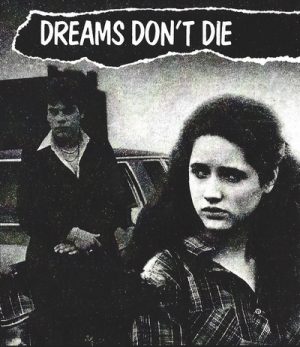
The most thrilling film of the pack is Dreams Don’t Die (1982), which pits a pair of teenage lovebirds against a nefarious, fifteen-year-old drug lord. Danny (Ike Eisenmann of Disney’s Witch Mountain movies) is a mild-mannered high school kid by day, but at night he becomes “King 65,” one of the New York City’s most respected graffiti artists. Teresa (Trini Alvarado) loves him, but after a lifetime in the foster system, she wants out—away from the city, away from the crime, away from poverty, to a place where she can see a future for herself. Concluding that her beloved Danny has no ambitions beyond illegally tagging whatever surface he can reach with a spray can or marker, the former good girl links up with the flashy drug dealer “Captain” Kirk (Israel Juarbe), a fearless young ruffian who thinks the police can’t touch him ‘til he turns sixteen. Our heroes’ lives are turned around by the generous nature of a concerned cop named Charlie Banks (Terminator’s Paul Winfield), who personally invests himself in their predicaments. With a future finally in sight, Danny and Teresa turn their attention to freeing themselves from the cruel grip of the wicked Captain Kirk.

Extras:
Each film has been restored in 4K from it's original 35mm camera negative and is presented in both 4:3 and widescreen aspect ratios. As these films were produced for and originally shown on television in the early 1980s, they have never looked better than they do here.
DEATH RIDE TO OSAKA:
•Video interview with director Jonathan Kaplan
•Audio commentary with Lars Nilsen
•Video essay by Chris O'Neill
DREAMS DON'T DIE:
•Audio commentary with Dino Proserpio and Jonathan Hertzberg
FREEDOM:
•Video interview with Andrea Adams
•Audio commentary with Amanda Reyes
PTP.Death.Ride.to.Osaka.1983.BluRay.part01.rar
PTP.Death.Ride.to.Osaka.1983.BluRay.part02.rar
PTP.Death.Ride.to.Osaka.1983.BluRay.part03.rar
PTP.Death.Ride.to.Osaka.1983.BluRay.part04.rar
PTP.Death.Ride.to.Osaka.1983.BluRay.part05.rar
PTP.Death.Ride.to.Osaka.1983.BluRay.part06.rar
PTP.Death.Ride.to.Osaka.1983.BluRay.part07.rar
PTP.Death.Ride.to.Osaka.1983.BluRay.part08.rar
PTP.Death.Ride.to.Osaka.1983.BluRay.part09.rar
PTP.Death.Ride.to.Osaka.1983.BluRay.part10.rar
PTP.Dreams.Don.t.Die.1982.BluRay.part01.rar
PTP.Dreams.Don.t.Die.1982.BluRay.part02.rar
PTP.Dreams.Don.t.Die.1982.BluRay.part03.rar
PTP.Dreams.Don.t.Die.1982.BluRay.part04.rar
PTP.Dreams.Don.t.Die.1982.BluRay.part05.rar
PTP.Dreams.Don.t.Die.1982.BluRay.part06.rar
PTP.Dreams.Don.t.Die.1982.BluRay.part07.rar
PTP.Dreams.Don.t.Die.1982.BluRay.part08.rar
PTP.Dreams.Don.t.Die.1982.BluRay.part09.rar
PTP.Dreams.Don.t.Die.1982.BluRay.part10.rar
PTP.Freedom.1981.BluRay.part01.rar
PTP.Freedom.1981.BluRay.part02.rar
PTP.Freedom.1981.BluRay.part03.rar
PTP.Freedom.1981.BluRay.part04.rar
PTP.Freedom.1981.BluRay.part05.rar
PTP.Freedom.1981.BluRay.part06.rar
PTP.Freedom.1981.BluRay.part07.rar
PTP.Freedom.1981.BluRay.part08.rar
PTP.Freedom.1981.BluRay.part09.rar
PTP.Freedom.1981.BluRay.part10.rar
